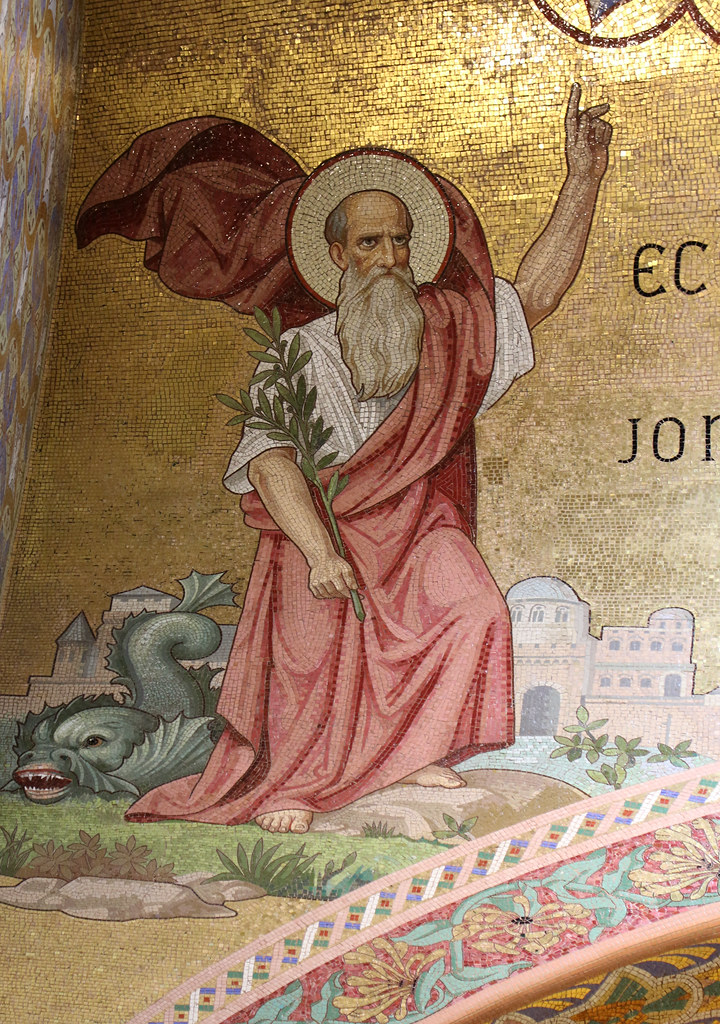An exploration of the connections between divine judgment, promise, and the foreshadowing of the coming Messiah in Jeremiah 21, highlighting the significance of these themes in the context of the Old Testament and their fulfillment in the New Testament.
Photo by JOHN TOWNER on Unsplash | Commercial use allowed
Overview of Jeremiah 21
Jeremiah 21 offers a profound glimpse into the historical and cultural context of the Old Testament, providing valuable insights into the consequences of straying from the covenant with God, idolatry, and social injustice in Israel. The chapter serves as a poignant reminder of the repercussions of these transgressions, offering a cautionary tale for future generations about the importance of remaining faithful to God’s covenant.
The historical and cultural context of Jeremiah 21 sheds light on the dire consequences of breaking the covenant with God, illustrating the severe impact of idolatry and social injustice in Israel. This context provides a comprehensive understanding of the weight of disobedience and the gravity of divine judgment, offering a cautionary example for subsequent generations about the perils of forsaking the covenant with God. By delving into the historical and cultural backdrop of Jeremiah 21, readers gain a nuanced understanding of the ramifications of deviating from the path of righteousness and the enduring relevance of the Old Testament narrative.
Furthermore, the major themes and messages in the book of Jeremiah are pivotal in comprehending the profound warnings and judgments that permeate its pages, as well as the messages of hope for the future and God’s faithfulness. The prophetic voice of Jeremiah resounds with urgency as he delivers impactful messages about the impending judgment that will befall the people of Israel, offering glimpses of hope amid the stark portrayal of judgment. These dual themes of impending judgment and enduring hope underscore the complex nature of the Old Testament narrative, providing depth and richness to the overall message of Jeremiah 21.
A specific example that illustrates the consequences of breaking the covenant with God and embracing idolatry and social injustice in Israel can be found in the historical accounts of the nation’s descent into apostasy and the subsequent divine retribution. For instance, the narratives of Israel’s unfaithfulness and the prophetic warnings of impending judgment in the book of Jeremiah serve as potent examples of the consequences of straying from the covenant. These historical accounts vividly depict the cyclical nature of divine relationships, where judgment is followed by the promise of restoration upon genuine repentance and devotion, thereby highlighting the profound significance of the consequences outlined in Jeremiah 21.
 Divine Judgment and Promise in Jeremiah 21
Divine Judgment and Promise in Jeremiah 21
Jeremiah 21 provides a profound insight into the concept of Divine Judgment and Promise, shedding light on the consequences of disobedience and the enduring hope encapsulated in the prophecies. The chapter vividly illustrates the weight of divine judgment, serving as a cautionary tale about the dire outcomes of forsaking the covenant with God. Through the impending judgment pronounced upon Jerusalem, the passage reveals the severe repercussions of straying from the path of righteousness and embracing idolatry and social injustice.
Additionally, the narrative in Jeremiah 21 doesn’t solely dwell on the impending doom; it also offers a glimmer of hope through the promise of restoration. This parallel theme emphasizes the faithfulness and mercy of God, portraying a divine assurance of redemption and renewal if the people turn back to Him. This interplay of judgment and promise not only showcases the consequences of disobedience but also underscores the enduring hope that lies within the divine prophecies. It serves as a poignant reminder of the cyclical nature of divine relationships, where judgment is followed by the promise of restoration upon genuine repentance and devotion.
#Jeremiah21, #MessianicProphecy, #JesusChrist, #OldTestament, #NewTestament, #BiblicalInterpretation, #Christianity, #ProphecyFulfillment, #Messiah, #BibleStudy, #ScriptureAnalysis, #PropheticTexts, #ChristologicalInterpretation, #Theology, #Redemption, #SalvationHistory, #BiblicalRevelation, #DivinePromise, #ChristianDoctrine, #MessiahForetold
An exemplary illustration of this duality can be found in the historical and cultural context of the book of Jeremiah. The prophet’s unwavering commitment to delivering God’s message, despite the resistance and disbelief he encountered, mirrors the enduring hope embedded in the divine promises. Jeremiah’s resilience and steadfastness in conveying both the impending judgment and the hope for restoration exemplify the intricate balance between divine judgment and promise, providing a comprehensive understanding of the Old Testament’s theological landscape and the complex interplay between God and His people.
The concept of divine judgment and promise in Jeremiah 21 holds significant implications for understanding the theological underpinnings of the Old Testament. By exploring the intricate interplay between these themes, readers gain insight into the cyclical nature of divine relationships, where judgment is followed by the promise of restoration and renewal upon genuine repentance and devotion. This profound understanding illuminates the enduring hope encapsulated in the Old Testament prophecies, underscoring the complex tapestry of divine mercy and justice that permeates the biblical narrative.
Foreshadowing of the Messiah in Jeremiah 21
Jeremiah 21 subtly foreshadows the coming Messiah by laying the groundwork for understanding the role of the Messiah as prophesied in the Old Testament. This prophetic anticipation is intricately woven into the text, offering glimpses of the future deliverance and redemption through the promised Messiah, thereby establishing a thematic connection between the Old and New Testaments [1] [2]. The foreshadowing of the Messiah in Jeremiah 21 serves as a testament to the continuity and coherence of God’s redemptive plan throughout the Scriptures.
One significant way in which Jeremiah 21 foreshadows the coming Messiah is through its prophecy of a righteous Branch. In Jeremiah 23:5-6, the prophet declares, “The days are coming,” declares the Lord, “when I will raise up for David a righteous Branch, a King who will reign wisely and do what is just and right in the land. In his days Judah will be saved and Israel will live in safety. This is the name by which he will be called: The Lord Our Righteous Savior.” This portrayal of a righteous and just king, descending from the line of David, serves as a clear foreshadowing of Jesus Christ, the ultimate Messiah, who fulfills the role of the righteous Branch and King described in this prophecy.
Furthermore, the suffering servant motif in Jeremiah 21 anticipates the redemptive work of the Messiah in the New Testament. The description of the suffering servant in Jeremiah 20:11, “But the Lord is with me like a mighty warrior; so my persecutors will stumble and not prevail. They will fail and be thoroughly disgraced; their dishonor will never be forgotten,” echoes the suffering and vindication of Jesus Christ, as depicted in the New Testament. This connection underscores the continuity of the Old Testament prophecies with the person and work of Jesus, emphasizing how Jeremiah’s message intricately weaves the anticipation of the Messiah into its prophetic utterances, thereby foreshadowing the redemptive mission of the coming Savior.
An additional example of the foreshadowing of the Messiah in Jeremiah 21 can be found in the parallels between the historical contexts of Jeremiah’s prophecies and the fulfillment of those prophecies in the New Testament. The historical accounts in Jeremiah 21, which anticipate a righteous king and a suffering servant, find their ultimate fulfillment in the person and work of Jesus Christ. By examining the historical and prophetic dimensions of Jeremiah 21, readers gain a comprehensive understanding of the intricate connections between the Old and New Testaments, shedding light on the profound significance of the Messiah’s role in the fulfillment of divine prophecies.
The Messiah in the Old Testament
The Old Testament is replete with prophecies about a coming Messiah, with references in 1 Samuel and Isaiah 53 serving as pivotal examples of these anticipatory glimpses into the future. For instance, in 1 Samuel 2, Hannah’s psalm prophetically alludes to the Messiah’s death and resurrection, offering a profound foreshadowing of the redemptive work that Jesus would ultimately fulfill. This demonstrates the intricate tapestry of Messianic prophecies woven throughout the Old Testament, each thread contributing to the vivid portrait of the Messiah.
Moreover, Isaiah 53 vividly portrays the suffering servant, anticipating the Messiah’s sacrificial role in bringing justice and righteousness to the world. This chapter is often regarded as a significant Messianic prophecy, as it foretells the redemptive mission undertaken by Jesus, thereby affirming his ultimate fulfillment of the Messianic role in the Old Testament. These prophetic references not only serve as powerful anchors for understanding the significance of Jesus as the ultimate Messiah but also underscore the intricate interplay between the Old Testament prophecies and their fulfillment in the New Testament, solidifying the unbroken lineage of divine promises.
One notable example that exemplifies the Messianic prophecies in the Old Testament is the portrayal of the Messiah as the ultimate fulfillment of the three Old Testament offices of Prophet, Priest, and King. This multifaceted representation underscores the depth of His significance and the far-reaching impact of His mission. Furthermore, the Messianic prophecies not only point to Jesus as the fulfillment of over 300 Old Testament promises but also serve as a source of inspiration, guiding the faithful to live in constant expectation of His return. The Messianic hope is not passive; it is meant to transform lives, instilling a desire to serve God and others, reflecting the profound impact of this belief on the daily lives of believers throughout history.
The Messianic expectations also had a profound impact on the Jewish community, although Jesus did not fulfill the conventional expectations of a conquering king, leading to significant disappointment. However, the transformative power of pondering on the Second Coming and its implications has endured as a central tenet of Christian faith, inspiring believers to lead lives characterized by hope, service, and devotion. Therefore, understanding the significance of the Messiah and His role as the fulfillment of the Messianic prophecies is essential in comprehending the profound influence of these beliefs on both ancient and contemporary religious traditions.
 Commonalities Between Jeremiah and Jesus
Commonalities Between Jeremiah and Jesus
The messages of Jeremiah and Jesus resonate with each other in profound ways, especially in their shared mission to warn the people of the impending judgment upon Jerusalem and the consequences of disobedience. Despite the different historical contexts in which they lived, both prophets faced similar challenges and resistance, yet remained resolute in delivering their messages faithfully. For instance, Jeremiah’s call for the people to escape the city of Jerusalem to survive the Babylonian siege finds a parallel in Jesus’ warning to flee Jerusalem before its destruction by the Romans.
Additionally, both prophets endured personal hardships and opposition due to their unwavering commitment to proclaiming God’s truth. Jeremiah was imprisoned and faced hostility from his own people, while Jesus encountered rejection, betrayal, and ultimately, crucifixion. These shared experiences impart a powerful message about the difficulties faced by faithful messengers of God throughout history. Despite the challenges, their resilience demonstrates the enduring nature of God’s message and the unwavering commitment of His messengers to fulfill their divine calling.
Furthermore, the commonalities in the messages of Jeremiah and Jesus shed light on the enduring relevance of their teachings. By analyzing their similar exhortations to escape the impending judgment, we gain insight into the timeless nature of God’s redemptive plan. Their parallel experiences underscore the unchanging nature of divine judgment and promise, providing invaluable lessons for understanding the complexities of faith, obedience, and the consequences of rejecting God’s word.
An additional example of the commonalities between Jeremiah and Jesus can be found in the resonating themes of divine judgment and promise that permeate their messages. Despite the temporal and cultural disparities between their respective eras, both prophets conveyed a consistent message of impending judgment and the call to repentance, emphasizing the enduring relevance of divine truth across historical periods. This enduring resonance serves as a testament to the timeless nature of God’s redemptive plan, underscoring the unchanging significance of divine judgment and promise as foundational elements of faith and obedience.
 Significance of the Messiah
Significance of the Messiah
The significance of the title “Messiah” goes beyond a mere label; it represents the promised Deliverer of the Jewish nation, as prophesied in the Hebrew Bible. This title carries profound weight in the history of Judaism, signifying the hope and anticipation of a chosen one who would bring salvation and restoration to the people of Israel. Throughout the ages, the anticipation of the Messiah has been a central theme in Jewish belief and practices, shaping their collective identity and faith. The Messianic prophecies in the Old Testament provided hope, faith, and a basis for the belief in Jesus as the fulfillment of these ancient promises.
For instance, the portrayal of the Messiah as the ultimate fulfillment of the three Old Testament offices of Prophet, Priest, and King is a testament to the comprehensive nature of His role in the divine plan. This multifaceted representation underscores the depth of His significance and the far-reaching impact of His mission. Furthermore, the Messianic prophecies not only point to Jesus as the fulfillment of over 300 Old Testament promises but also serve as a source of inspiration, guiding the faithful to live in constant expectation of His return. The Messianic hope is not passive; it is meant to transform lives, instilling a desire to serve God and others, reflecting the profound impact of this belief on the daily lives of believers throughout history.
The Messianic expectations also had a profound impact on the Jewish community, although Jesus did not fulfill the conventional expectations of a conquering king, leading to significant disappointment. However, the transformative power of pondering on the Second Coming and its implications has endured as a central tenet of Christian faith, inspiring believers to lead lives characterized by hope, service, and devotion. Therefore, understanding the significance of the Messiah and His role as the fulfillment of the Messianic prophecies is essential in comprehending the profound influence of these beliefs on both ancient and contemporary religious traditions.
An additional example of the significance of the Messiah can be found in the transformative impact of the Messianic hope on the lives of believers throughout history. The anticipation of the Messiah and the fulfillment of the Messianic prophecies in Jesus Christ serve as a cornerstone of faith, guiding believers to lead lives characterized by hope, service, and devotion. This transformative impact is reflected in the profound influence of the Messianic hope on the daily lives of believers, inspiring them to embody the values of the kingdom of God, thereby underscoring the enduring significance of the Messianic belief in shaping religious traditions and guiding the faithful in their spiritual journeys.
Living in Expectation
The certainty of the Second Coming of Christ is a fundamental aspect of Christian faith, serving as a source of hope and motivation for believers. The anticipation of Christ’s return is not merely a passive expectation but rather a transformative and active mindset that influences the way Christians live their lives. This anticipation prompts believers to lead lives characterized by hopeful expectation and dedicated service to God and others.
For example, the concept of living in expectation of Christ’s return is deeply rooted in the teachings of Jesus, who repeatedly emphasized the need for his followers to be watchful and ready for his coming. In the parable of the ten virgins, Jesus illustrated the importance of being prepared and watchful for the bridegroom’s arrival, highlighting the significance of living in constant expectation. This illustration serves as a powerful reminder of the transformative impact of pondering on the Second Coming, as it inspires believers to cultivate a spiritually vibrant and morally upright life, characterized by readiness and anticipation.
Furthermore, the anticipation of Christ’s return is not meant to lead to complacency or idleness, but rather to spur believers to active engagement in advancing God’s kingdom. This active engagement involves acts of compassion, justice, and mercy, as believers seek to embody the values of the kingdom of God in their everyday lives. The transformative impact of living in expectation of Christ’s return is thus reflected in the way believers are motivated to serve others and work towards the fulfillment of God’s purposes on earth, recognizing that their actions are part of the broader narrative of God’s redemptive plan for the world.
The transformative impact of living in expectation of Christ’s return is further exemplified in the lives of believers throughout history, as they have been inspired to lead lives characterized by hope, service, and devotion. This transformative impact underscores the enduring relevance of the Messianic belief in shaping the spiritual journeys of believers, guiding them to embody the values of the kingdom of God and actively engage in advancing God’s purposes on earth. By living in constant expectation of Christ’s return, believers are motivated to lead morally upright lives characterized by readiness and anticipation, reflecting the profound influence of the Messianic hope on their daily actions and spiritual outlook.
Comparison of Scenarios
When we compare the scenarios in Jeremiah 21 and the warnings presented by Jesus in the New Testament, we find striking similarities that accentuate the enduring relevance of the messages of judgment and the call to escape and survive. For instance, in Jeremiah 21, the impending judgment upon Jerusalem and the advice to escape the city to survive are mirrored in Jesus’ warnings to flee Jerusalem prior to its destruction. This parallel demonstrates the consistent pattern of divine warnings throughout history, urging people to take heed and seek redemption.
Moreover, while the specific historical contexts of Jeremiah’s and Jesus’ messages differ, the underlying theme of impending judgment and the need for escape resonates profoundly. In Jeremiah’s time, the siege of Jerusalem resulted in destruction and burning, while Jesus’ warnings of the city’s impending doom were also met with resistance and disbelief, ultimately leading to its devastation. These shared narratives emphasize the timeless nature of divine judgment and promise, transcending historical periods and calling for a universal response of faithfulness and repentance. This comparison reveals the enduring relevance of God’s redemptive messages throughout salvation history, underscoring the interconnectedness of these pivotal themes in the Old and New Testaments.
An additional example of the comparison between Jeremiah 21 and the warnings presented by Jesus can be found in the resonating themes of impending judgment and the call to escape and survive in both scenarios. Despite the temporal and cultural disparities between their respective eras, both prophets conveyed a consistent message of impending judgment and the call to repentance, emphasizing the enduring relevance of divine truth across historical periods. This enduring resonance serves as a testament to the timeless nature of God’s redemptive plan, underscoring the unchanging significance of divine judgment and promise as foundational elements of faith and obedience.
Lessons from Jeremiah and Jesus
The experiences of Jeremiah and Jesus in delivering messages of impending judgment yield timeless lessons, emphasizing the enduring relevance of their messages in comprehending divine judgment and promise. Their unwavering commitment to proclaim God’s truth amidst adversity serves as a source of inspiration, imparting invaluable insights into the enduring nature of God’s redemptive plan and the transformative power of faithful obedience.
Furthermore, the difficulties faced by Jeremiah and Jesus as faithful prophets provide a profound lesson in perseverance and steadfastness. Despite facing resistance, disbelief, and personal tension points, both prophets remained resolute in their commitment to convey the divine message. For instance, Jeremiah faced opposition from the people and the ruling elite, enduring imprisonment and hardship due to his unwavering dedication to conveying God’s word. Similarly, Jesus encountered significant pushback from religious authorities and societal norms, ultimately leading to his crucifixion, yet his resolve in fulfilling his divine mission remained unshaken.
Moreover, the enduring relevance of the messages of Jeremiah and Jesus extends to the concept of hope in the midst of judgment. Both prophets not only conveyed warnings of impending judgment but also offered messages of hope and God’s faithfulness, underscoring the redemptive nature of divine promise in the face of adversity. Despite the impending judgment upon Jerusalem, Jeremiah’s prophecies also contained assurances of restoration and a future filled with hope. Similarly, Jesus’ teachings emphasized the promise of salvation and the establishment of God’s kingdom, providing hope for humanity despite the challenges and judgment that lay ahead.
In essence, the experiences of Jeremiah and Jesus serve as enduring lessons in perseverance, steadfastness, and the redemptive nature of divine promise, offering profound insights into the transformative power of faith and obedience in the midst of adversity. Their messages continue to resonate across generations, providing guidance and encouragement for those navigating

 Divine Judgment and Promise in Jeremiah 21
Divine Judgment and Promise in Jeremiah 21 Commonalities Between Jeremiah and Jesus
Commonalities Between Jeremiah and Jesus Significance of the Messiah
Significance of the Messiah

